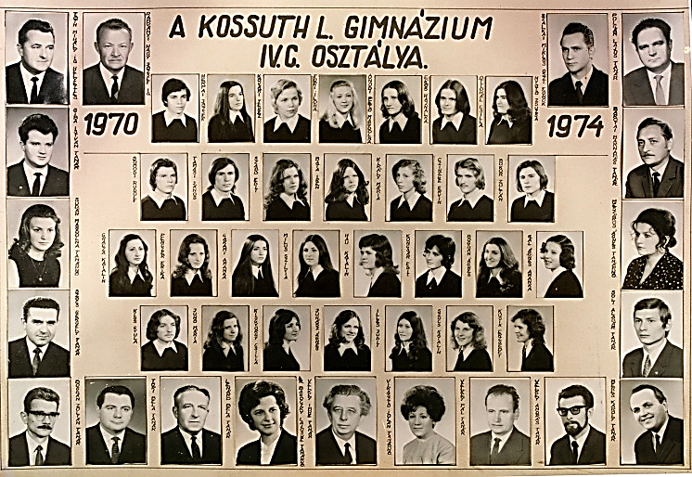
Published 2021-05-25
Keywords
- teacher training,
- communist regime,
- teacher’s professional life,
- school memories
How to Cite
Abstract
The study aims to introduce the memories of Hungarian high school teachers about their professional activities. The main aim is to investigate the experience of being a teacher during the communist era. Based on interviews with eleven retired secondary school teachers from a small town, the study attempts to depict personal life stories and identify altering pedagogical action models formed by history that are dependent on different social and political demands. With the help of the teachers’ memories, the study represents their educational paths and the way these educational professionals see the tasks, the roles, the prestige of their profession as well as the way they experienced their failures, victories, and their active and retired years.
References
Bihari, Mihály. 1996. “A szocialista állam.” Rubicon. 8:4–5.
http://www.rubicon.hu/magyar/oldalak/a_szocialista_allam Accessed: Mai 15, 2020.
Carver, Terell. 2004. „Diskurzuselemzés és a „nyelvi fordulat". Politikatudományi Szemle. 4: 143–148.
Depaepe, Marc. 2007. „Philosophy and History of Education: Time to bridge the gap?” Educational Philosophy and Theory. 1:28–43.
Esterberg, Kristin, G. 2001. Qualitative Methods in Social Research. New York: McGraw-Hill Companies.
Friedson, Eliot. 2001. Professionalism. The Third Logic. Cambridge: Polity Press.
Fónai, Márton and Dusa, Ágnes R. 2014. “A tanárok presztízsének és társadalmi státuszának változásai a kilencvenes és kétezres években.” Iskolakultúra, 6:41–49.
Garai, Imre and Németh, András. 2018. “Construction of the national state and the institutionalization processes of the modern Hungarian secondary school teacher training system”. Espacio Tiempo Y Educación 5:219–232.
Glatz, Ferenc. 2009. „Magyarország a szovjet zónában és a rendszerváltásban, 1945–1990. Források, adattárak Magyarország és a magyarság második világháború utáni történetéhez (Egy könyvsorozat elé)”. Történeti Szemle. 51:1–11. http://real.mtak.hu/35454/1/2009_Glatz_Magyarorszag_a_szovjet_zonaban_es_a_rendszervaltasban_19451990._u.pdf Accessed: June 15, 2020.
Gyányi, Gábor. 2010. Az elveszíthető múlt. Budapest: Nyitott Könyvműhely Kiadó.
Halbwachs, Maurice. 2010. A kollektív emlékezet. In: Felkai Gábor, Némedi Dénes, Somlai Péter, ed. Szociológiai irányzatok a 20. században. 403–432. Budapest: Új Mandátum Kiadó.
Jarausch, Konrad H. 1983. Higher Education and Social Change: Some Comparative Perspectives. In: Jarausch, Konrad H. ed. The Transformation of Higher Learning, 1860–1930. Expansion, Diversification, Social Opening and Professionalization in England, Germany, Russia and The United States. Stuttgart: Klett-Cotta.
Johnson, Terence J. 1972. Professions and Power. London: MacMillan.
J. W. He. 1911. Kossuth, Lajos. In: Chisholm, Hugh. ed. The Encyclopaedia Britannica, 916–918. Cambridge, England and New York: At the University Press. https://archive.org/stream/encyclopaediabri15chisrich#page/916/mode/2up Accessed: June 15, 2020.
Kovács, Éva. 2007. A narratív módszertanok politikája.
http://www.forrasfolyoirat.hu/1107/kovacs.pdf Accessed: June 15, 2020.
Ladányi, Andor. 1999. A magyar felsőoktatás a 20. században. Budapest: Akadémia Kiadó. http://mek.oszk.hu/10900/10983/ Accessed: June 15, 2020.
Ladányi, Andor. 2008. A középiskolai tanárképzés története. Budapest: Új Mandátum Kiadó.
Mason, Jennifer. 2005. Kvalitatív kutatás. Budapest: Jószöveg Műhely.
Nagy, Mária. 2001. Tanárbérek régen és ma, nálunk és külföldön. In: Papp, János ed. A tanári pálya. 8–86. Debrecen: Kossuth Egyetemi Kiadó.
Németh, András. 2002. A magyar neveléstudomány fejlődéstörténete. IV. Budapest: Osiris Kiadó.
Németh, András. 2009. „A középiskolai tanárképzés és szakmai professzió kialakulása a 18-20. században”. Educatio, 3:279–290.
Nagy, Péter Tibor. 2009. „Egységesülő tanárképzés – differenciált társadalom”. Educatio, 3: 291–305.
Nora, Pierre. 1984. Entre Mémoire et Histoire/Emlékezet és történelem között. (Transl. K. Horváth. Zs.) http://epa.oszk.hu/00800/00861/00012/99-3-10.html Accessed: Mai 15, 2020.
Puttkamer, v. Joachim. 2003. Schulalltag und nationale Integration in Ungarn. München: Oldenbourg Publishing House.
Pukánszky, Béla and Németh, András. 2004. Neveléstörténet. Budapest: Nemzeti Tankönyvkiadó. Chapter 12. http://mek.oszk.hu/01800/01893/html/12.htm Accessed: Mai 15, 2020.
Reznák, Erzsébet. 1982. Társadalmi és politikai harcok, irányzatok a XX. század elejéig. In: Ikvai, Nándor ed. Cegléd története. 263–287. Szentendre: Studia Comitatensia 11.
Romsics, Ignác. 2008. Történelem, történetírás, hagyomány. Budapest: Osiris Kiadó.
Romsics, Ignác. 2010. Magyarország története a 20. században. Budapest: Osiris Kiadó.
Vértesi, László. 2004. “Oral history”. Aetas, 1, 19:1–15.
http://epa.oszk.hu/00800/00861/00027/pdf/vertesi.pdf Accessed: Mai 15, 2020.
Vincze, Beatrix. 2018.Tanári életutak a 20. század második felében. Budapest: Eötvös Kiadó.
References of Laws:
1883. XXX. Law Article. About secondary schools and the qualifications of their teachers.https://net.jogtar.hu/ezer-ev-torveny?docid=88300030.TV&searchUrl=/ezer-ev-torvenyei%3Fpagenum%3D31 Accessed: Mai 15, 2020.
1920. Numerus Clausus. Regulation of enrolment on the universities in Budapest, on the Technical University, on Faculty of Economics and Law academieshttps://net.jogtar.hu/getpdf?docid=92000025.TV&targetdate=&printTitle=1920.+%C3%A9vi+XXV.+t%C3%B6rv%C3%A9nycikk&referer=1000ev Accessed: Mai 15, 2020.
1928. Modification of Numerus Clausus.https://web.archive.org/web/20190106153317/http://regi.sofar.hu/hu/book/export/html/13270 Accessed: Mai 15, 2020.
1934. Law Article XI. About the Secondary School https://net.jogtar.hu/ezer-ev-torveny?docid=93400011.TV&searchUrl=/ezer-ev-torvenyei%3Fpagenum%3D41 Accessed: Mai 15, 2020.
1946. Law Article XXII. Justification for the recruitment of women to universities and colleges https://net.jogtar.hu/ezer-ev-torveny?docid=94600022.TVI&searchUrl=/ezer-ev-torvenyei%3Fpagenum%3D51 Accessed: Mai 15, 2020.
